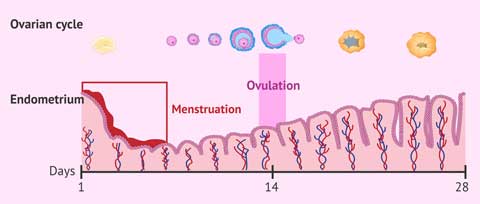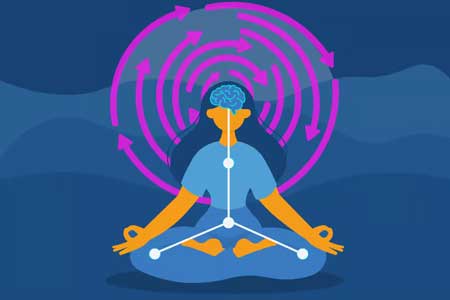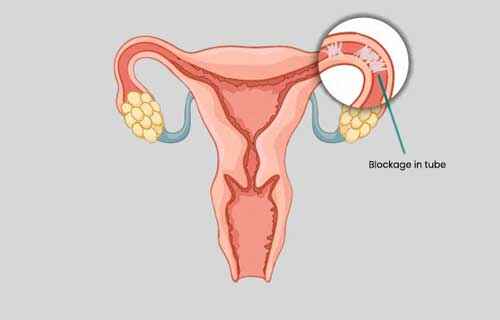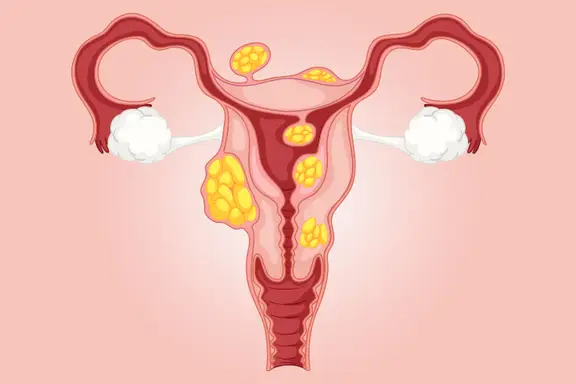Introduction: Why Mental Health Matters for Fertility

Mental health is an integral part of fertility, as emotional well-being significantly influences physical health and reproductive function. High levels of stress can create hormonal imbalances that disrupt ovulation, menstrual cycles, and overall fertility. A comprehensive approach to fertility often involves addressing mental health, particularly through effective stress management techniques. Incorporating practices like yoga can help in cultivating a balanced mind and body, which can improve your chances of conception.
The Role of Stress in Fertility Challenges
Stress is a common hurdle faced by individuals and couples trying to conceive. It can come from various sources, such as work pressures, relationship issues, or the emotional strain of fertility treatments. The psychological burden of trying to conceive can lead to a vicious cycle where stress affects fertility, and the struggle with fertility in turn heightens stress levels. This relationship underscores the importance of managing stress as part of the fertility journey.
How Yoga Combines Mental and Physical Healing
Yoga offers a holistic approach that combines mental and physical healing. Through regular practice, individuals can develop coping strategies to manage stress effectively. The mindful nature of yoga encourages self-awareness, promoting relaxation and mental clarity. By incorporating yoga into a daily routine, individuals can experience a reduction in stress levels, leading to a more positive state of mind conducive to conception.
Overview: Stress Management Through Yoga for Fertility

Yoga promotes relaxation and mindfulness, making it a powerful tool for stress management. The practice incorporates various elements, including breath control (pranayama), physical postures (asanas), and meditation, all of which work synergistically to calm the mind and body. Regular practice can help lower cortisol levels, the hormone primarily responsible for stress responses, thereby improving overall emotional well-being.
The Connection Between Stress and Fertility
How Stress Affects Hormonal Balance
Stress has a profound effect on hormonal balance, which is crucial for reproductive health. When the body experiences stress, it releases cortisol, a hormone that can interfere with the normal functioning of the reproductive system. Elevated cortisol levels can lead to irregular menstrual cycles, decreased libido, and ovulation issues, all of which can hinder conception.
Impact of Cortisol on Reproductive Health
Cortisol can disrupt the delicate balance of hormones essential for reproduction. High cortisol levels can inhibit the production of hormones such as progesterone and estrogen, which play critical roles in regulating the menstrual cycle and preparing the body for pregnancy. This imbalance can lead to issues such as anovulation, making it more difficult for individuals to conceive.
The Disruption of Ovulation and Menstrual Cycles

Stress can also lead to irregularities in the menstrual cycle, including missed periods or unusually heavy bleeding. These disruptions can prevent ovulation, making it challenging to conceive. Additionally, stress can exacerbate conditions such as polycystic ovary syndrome (PCOS), which is often linked to fertility issues.
Psychological Effects of Stress on Conception
The psychological impact of stress on individuals trying to conceive can be significant. Stress can lead to feelings of anxiety, depression, and hopelessness, which can further complicate the fertility journey. Mental strain can create a barrier to conception, as emotional turmoil can affect relationships and overall well-being.
Mental Strain and Delayed Conception
Many individuals experience mental strain when facing fertility challenges, which can delay conception. The constant worry and pressure to conceive can create a hostile environment for pregnancy. This emotional turmoil can manifest physically, leading to a cycle where stress and anxiety further delay conception.
Stress-Induced Infertility in Men and Women

Both men and women can experience stress-induced infertility. For men, high levels of stress can negatively impact sperm production and quality. In women, stress can lead to hormonal imbalances that affect ovulation and menstruation. Understanding the psychological effects of stress is crucial for developing effective coping strategies that enhance fertility.
Yoga for Fertility as a Tool to Relieve Stress and Improve Fertility
Yoga’s Influence on the Nervous System
Yoga is a powerful practice that can help manage stress and improve fertility by influencing the nervous system. Through specific postures and breathing techniques, yoga activates the parasympathetic nervous system, promoting relaxation and reducing the body’s stress response.
How Yoga Activates the Parasympathetic Nervous System
The parasympathetic nervous system is responsible for the body’s rest-and-digest functions. When activated, it helps to lower heart rate, reduce blood pressure, and promote a sense of calm. Yoga encourages this activation through gentle movements and controlled breathing, creating a conducive environment for conception.
Benefits of Calming the Nervous System for Conception
Calming the nervous system through yoga can lead to reduced levels of anxiety and stress, improving overall mental health. This calm state can enhance fertility by creating a balanced hormonal environment. Furthermore, a relaxed mind is better equipped to handle the challenges associated with trying to conceive, fostering a more positive outlook.
Why Yoga for Fertility Reduces Anxiety and Emotional Turmoil
Yoga is effective in reducing anxiety and emotional turmoil by fostering a deep mind-body connection. The practice encourages mindfulness, allowing individuals to focus on the present moment rather than worrying about future outcomes.
Mind-Body Connection in Stress Reduction

The mind-body connection established through yoga enhances emotional regulation, helping individuals cope with the emotional highs and lows of the fertility journey. By promoting awareness of physical sensations and emotions, yoga enables individuals to process their feelings healthily, reducing the overall impact of stress.
Meditation for Fertility: Clearing the Mind
Benefits of Mindfulness Meditation for Fertility
Mindfulness meditation is a valuable practice for enhancing fertility by promoting mental clarity and emotional stability. This technique encourages individuals to focus on the present moment, reducing mental noise and worry about conception outcomes.
Reducing Mental Noise and Worry
One of the primary benefits of mindfulness meditation is its ability to reduce mental noise. By fostering a state of calm, individuals can let go of intrusive thoughts and anxieties surrounding fertility, allowing for greater emotional peace. This mental clarity can improve overall emotional health, essential for supporting conception.
Enhancing Focus on the Present Moment

Focusing on the present moment helps individuals detach from future worries and anxieties, which can be particularly beneficial during the fertility journey. Mindfulness meditation encourages individuals to embrace each moment, fostering gratitude and acceptance that can significantly improve mental well-being.
Guided Meditation Techniques for Fertility
Incorporating guided meditation techniques can enhance the benefits of mindfulness meditation for fertility. Guided practices can provide structure and support, making it easier for individuals to connect with their emotions and visualize positive outcomes.
Visualizations to Promote Positive Energy
Visualization techniques can be particularly powerful in promoting positive energy and reducing stress. By visualizing a successful conception and nurturing pregnancy, individuals can cultivate a mindset that aligns with their fertility goals. This positive energy can have a profound impact on mental health, creating an environment conducive to conception.
Daily Practice for Emotional Well-Being
Establishing a daily meditation practice can lead to lasting emotional well-being. Regular meditation fosters resilience and coping skills, allowing individuals to navigate the ups and downs of the fertility journey more effectively. Consistency is key, and setting aside time each day for meditation can yield significant benefits.
The Power of Yoga Nidra in Reducing Fertility Stress

What is Yoga Nidra and How It Works
Yoga Nidra, or “yogic sleep,” is a unique practice that promotes deep relaxation and emotional healing. This guided meditation technique leads individuals into a state of conscious awareness while achieving profound physical and mental relaxation.
Deep Relaxation for Emotional Healing
During Yoga Nidra, practitioners experience deep relaxation that can help release long-held stress and emotional trauma. This release can be particularly beneficial for individuals facing fertility challenges, as it allows for the processing of emotional burdens that may hinder conception.
Entering a Conscious Sleep State for Restoration
Yoga Nidra helps individuals enter a conscious sleep state, providing the restorative benefits of sleep while maintaining awareness. This unique practice supports mental and hormonal balance, making it a valuable tool for enhancing fertility.
The Benefits of Yoga Nidra for Fertility
Incorporating Yoga Nidra into a fertility wellness routine can yield numerous benefits. The practice supports relaxation and emotional clarity, which are vital for managing stress and promoting fertility.
Releasing Long-Held Stress and Emotional Trauma
Yoga Nidra facilitates the release of long-held stress and emotional trauma, providing a safe space for healing. By addressing these underlying emotional issues, individuals can create a more balanced and supportive environment for conception.
How Deep Rest Supports Mental and Hormonal Balance
The deep rest achieved through Yoga Nidra supports both mental and hormonal balance. This balance is essential for reproductive health, as it helps regulate the hormonal fluctuations that can impact fertility.
Pranayama: Breathing Techniques for Mental
Calm in Yoga for Fertility

Introduction to Pranayama and Its Importance for Fertility
Pranayama, or yogic breathing, is a fundamental aspect of yoga that plays a vital role in managing stress and enhancing fertility. By focusing on the breath, individuals can achieve a state of mental calm and emotional stability.
How Conscious Breathing Affects Mental Health
Conscious breathing techniques can significantly impact mental health by promoting relaxation and reducing anxiety. When individuals focus on their breath, they can shift their attention away from stressors and cultivate a sense of calm.
The Link Between Breath and Hormonal Balance
Breathing techniques have been shown to influence hormonal balance, making pranayama a powerful tool for enhancing fertility. By regulating breath, individuals can support their body’s natural processes, fostering an environment conducive to conception.
Key Pranayama Techniques for Fertility
Several pranayama techniques can be particularly beneficial for enhancing fertility. Practicing these techniques regularly can help manage stress and improve overall well-being.
Nadi Shodhana (Alternate Nostril Breathing)

Nadi Shodhana, or alternate nostril breathing, is an excellent technique for calming the mind and balancing energy. This practice promotes relaxation and can help regulate hormones, making it a valuable addition to a fertility-focused routine.
Bhramari (Bee Breath) for Immediate Calm

Bhramari, or bee breath, involves making a humming sound while exhaling, promoting immediate calm. This technique can reduce anxiety and create a sense of peace, helping individuals feel more centered during their fertility journey.
Kapalbhati (Skull-Shining Breath) to Clear the Mind

Kapalbhati, or skull-shining breath, is a cleansing breathing technique that energizes the body and clears the mind. This practice can help individuals release mental clutter and focus on their fertility goals with renewed energy and clarity.
Best Yoga for Fertility Asanas for Reducing Stress and Boosting Fertility
Restorative Poses to Relieve Mental and Physical Tension
Incorporating restorative yoga poses into a daily routine can significantly alleviate mental and physical tension. These gentle stretches promote relaxation and enhance overall well-being, making them ideal for those on the fertility journey.
Viparita Karani (Legs Up the Wall Pose) for Deep Relaxation

Viparita Karani, or legs-up-the-wall pose, is a restorative position that promotes deep relaxation and blood circulation. This pose can help calm the nervous system, providing a sense of peace that is beneficial for conception.
Supta Baddha Konasana (Reclined Bound Angle Pose) to Open the Pelvis

Supta Baddha Konasana, or reclined bound angle pose, encourages openness in the pelvic region, promoting relaxation and emotional release. This pose can help individuals feel more connected to their bodies, enhancing overall emotional well-being.
Balasana (Child’s Pose) for Grounding and Calmness

Balasana, or child’s pose, is a grounding position that promotes a sense of calm. This pose encourages introspection and relaxation, making it a valuable addition to any fertility-focused yoga practice.
Yoga for Fertility Poses to Support Reproductive Health
Certain yoga poses can directly support reproductive health, enhancing blood flow and promoting hormonal balance.
Setu Bandhasana (Bridge Pose) to Stimulate the Pelvic Region

Setu Bandhasana, or bridge pose, stimulates the pelvic region and encourages healthy blood flow to the reproductive organs. This pose can enhance hormonal balance, making it beneficial for those trying to conceive.
Janu Sirsasana (Head-to-Knee Pose) for Improved Blood Flow

Janu Sirsasana, or head-to-knee pose, promotes flexibility and stimulates blood flow to the reproductive organs. This pose can help relieve tension in the lower back and improve overall reproductive health.
How Physical Movement Helps Release Stress
Engaging in physical movement through yoga helps release pent-up stress and tension. The mindful nature of yoga encourages individuals to connect with their bodies, promoting emotional healing.
Poses That Promote Emotional Balance
Certain yoga poses, such as forward bends and heart openers, can promote emotional balance. These poses help individuals connect with their emotions, fostering a sense of peace and acceptance during the fertility journey.
Creating a Fertility-Focused Yoga Routine
Integrating Pranayama, Asanas, and Meditation
Creating a balanced yoga routine that integrates pranayama, asanas, and meditation can maximize the benefits of practice. This comprehensive approach supports both mental and physical health, enhancing fertility.
How to Build a Balanced Routine for Conception
To build a balanced routine, individuals should include a combination of pranayama, restorative poses, and meditation. Starting with breathwork can set the tone for the practice, followed by asanas that promote relaxation and emotional release.
Setting a Time and Space for Daily Practice
Designating a specific time and space for daily practice can help establish consistency. Creating a calming environment with minimal distractions can enhance the effectiveness of the practice.
Best Time of Day to Practice for Stress Relief
The time of day for practice can significantly influence its effectiveness. Choosing the right time can enhance the benefits of yoga and support emotional well-being.
Morning Practice for Energy and Mental Clarity
Practicing yoga in the morning can energize the body and mind, setting a positive tone for the day. Morning sessions can also help reduce stress and anxiety, promoting mental clarity throughout the day.
Evening Practice for Deep Relaxation and Stress Release
Evening yoga sessions can provide deep relaxation and help individuals unwind after a busy day. Focusing on restorative poses and mindfulness meditation can promote better sleep and emotional balance.
Long-Term Emotional Benefits of Yoga for Fertility
Building Emotional Resilience and Patience
Regular yoga practice can help individuals build emotional resilience and patience during the fertility journey. The practice encourages self-acceptance and fosters a positive mindset, helping individuals cope with challenges.
Coping with the Ups and Downs of Fertility
Yoga provides a supportive framework for coping with the emotional ups and downs of fertility. By promoting mindfulness and emotional regulation, individuals can navigate their journey with greater ease.
Developing a Positive Mindset Over Time
The long-term benefits of yoga include the development of a positive mindset. Regular practice can foster gratitude, self-compassion, and acceptance, enhancing emotional well-being.
How Yoga Supports Mental Health Beyond Conception
Yoga’s benefits extend beyond the fertility journey, supporting mental health in various aspects of life.
Fostering Mindful Patience During the Journey
Practicing mindfulness through yoga fosters patience during the fertility journey. This quality can help individuals manage their expectations and cope with the uncertainties that often accompany the process.
Using Yoga to Combat Burnout and Emotional Overwhelm
Yoga serves as an effective tool for combating burnout and emotional overwhelm. The practice encourages relaxation and self-care, essential components for maintaining emotional balance throughout the fertility journey.
The Science Behind Yoga and Fertility: What Research Says
How Yoga Affects Stress Hormones
Research has shown that yoga can positively influence stress hormones, including cortisol. This effect can improve overall mental health, which is crucial for fertility.
Research on Cortisol and Yoga’s Impact on Hormonal Balance
Studies have demonstrated that regular yoga practice can lead to significant reductions in cortisol levels. Lower cortisol levels contribute to hormonal balance, which is essential for reproductive health.
Yoga’s Role in Improving Reproductive Function
Yoga has been linked to improved reproductive function, with studies indicating positive outcomes for individuals trying to conceive. By enhancing hormonal balance and reducing stress, yoga can support the body’s natural processes involved in conception.
Case Studies and Research on Yoga’s Role in Fertility
Numerous case studies and research projects support the effectiveness of yoga in enhancing fertility.
Studies Supporting Yoga’s Effectiveness for Conception
Research has shown that individuals who practice yoga regularly may experience improved fertility outcomes. These studies highlight the importance of managing stress and promoting mental health as part of the fertility journey.
Complementary Practices to Support Yoga for Fertility
Journaling and Emotional Expression
Incorporating journaling into your fertility journey can complement yoga practice by fostering emotional expression. Writing about your thoughts and feelings can provide clarity and support emotional healing.
Writing to Process Emotions Around Fertility
Journaling allows individuals to process their emotions around fertility, helping them navigate the complexities of their journey. This practice can enhance self-awareness and promote emotional balance.
Keeping Track of Emotional Progress Over Time
Maintaining a journal can help individuals track their emotional progress over time. By reflecting on their experiences, individuals can gain insights into their feelings and identify patterns that may impact their fertility.
Acupuncture and Fertility Massage
Acupuncture and fertility massage are complementary practices that can enhance the benefits of yoga.
How Acupuncture Complements Yoga in Stress Management
Acupuncture is known for its stress-reducing benefits, which can complement yoga practice. This combination can help individuals manage stress and promote hormonal balance, enhancing fertility.
Fertility Massage for Emotional and Physical Healing
Fertility massage focuses on the abdominal area, promoting relaxation and enhancing blood flow to the reproductive organs. This practice can support emotional and physical healing, making it a valuable addition to a fertility-focused routine.
Positive Affirmations and Visualization Techniques
Incorporating positive affirmations and visualization techniques can enhance the benefits of yoga and meditation.
Reframing Your Fertility Journey with Positivity
Positive affirmations help reframe negative thoughts and cultivate a positive mindset. By focusing on affirmations related to fertility, individuals can promote emotional well-being and self-acceptance.
Using Visualizations to Manifest a Calm and Positive Mindset
Visualization techniques can be powerful tools for manifesting positive outcomes. By visualizing a successful conception and nurturing pregnancy, individuals can foster a sense of calm and positivity throughout their journey.
Common Misconceptions About Yoga and Fertility
Debunking the Myth That Yoga Alone Guarantees Pregnancy
While yoga offers numerous benefits for mental and emotional health, it is essential to recognize that it is not a guaranteed solution for fertility challenges.
Yoga as a Complementary Practice, Not a Cure-All
Yoga should be viewed as a complementary practice rather than a standalone solution. It is crucial to incorporate other fertility-enhancing strategies and seek medical advice when necessary.
Safe and Unsafe Poses During Conception and IVF
Understanding which yoga poses are safe and beneficial during conception and IVF is essential for a successful practice.
Gentle Poses for Those Undergoing Treatments
Gentle yoga poses are generally safe for individuals undergoing fertility treatments. Restorative poses and modifications can help support the body during this sensitive time.
Poses to Avoid During Fertility Treatments
Certain poses, such as deep twists and inversions, may not be recommended for individuals undergoing fertility treatments. Consulting with a qualified instructor can help ensure safe practice.
Is Yoga a Substitute for Medical Treatment?
It is essential to understand that yoga should not be seen as a substitute for medical treatment.
Understanding Yoga’s Supportive Role in Holistic Fertility Care
Yoga can play a supportive role in holistic fertility care, helping individuals manage stress and promote overall well-being. However, it should be integrated with medical guidance and other fertility-enhancing practices.
FAQs on Yoga, Stress, and Fertility
How Long Does It Take for Yoga to Affect Fertility?
The timeline for yoga’s impact on fertility varies by individual. Many people experience immediate stress relief, while hormonal balance and improved reproductive health may take several months of consistent practice.
Is Yoga Safe During Fertility Treatments Like IVF?
Generally, gentle yoga practices are considered safe during fertility treatments like IVF. However, it is crucial to consult with healthcare professionals to tailor a safe routine to individual needs.
Can Meditation Improve Hormonal Imbalance?
Yes, meditation can help reduce stress, which is linked to hormonal imbalances. Regular meditation practice can support emotional health and contribute to hormonal regulation.
Which Yoga Poses Are Most Effective for Fertility?
Some effective yoga poses for fertility include Setu Bandhasana (Bridge Pose), Supta Baddha Konasana (Reclined Bound Angle Pose), and Viparita Karani (Legs Up the Wall Pose). These poses promote relaxation and blood flow to reproductive organs.
How Often Should Pranayama Be Practiced to Manage Stress?
Practicing pranayama daily, even for a few minutes, can significantly impact stress management. Consistency is key to experiencing the benefits of breathwork.
Does Yoga Nidra Help with Conception?
Yoga Nidra can help with conception by promoting deep relaxation and reducing stress. This practice encourages emotional healing and hormonal balance, creating a supportive environment for conception.
Conclusion: The Power of Yoga for Mental Health and Fertility
The Importance of Managing Stress for Conception
Managing stress is crucial for improving fertility. By incorporating yoga into daily routines, individuals can reduce stress levels and enhance their overall well-being.
Long-Term Benefits of Stress Reduction Through Yoga
The long-term benefits of yoga extend beyond fertility, promoting emotional resilience and mental clarity. Regular practice fosters a positive mindset and supports overall mental health.
Building a Supportive Routine to Improve Emotional and Physical Health
Creating a supportive routine that includes yoga, meditation, and complementary practices can significantly improve emotional and physical health. This holistic approach enhances fertility and nurtures well-being throughout the journey to conception.



